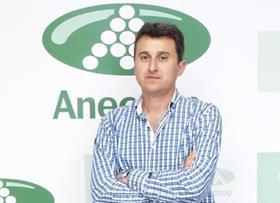
Implementing the latest phase of Anecoop’s integration strategy will be the top priority of the company’s new president during his tenure. Alejandro Monzón told Fruitnet that the plan aims to bring about greater operating efficiency and create new opportunities for expansion in overseas markets.
“Above all, I will be focusing on fulfilling the Integration Plan 2013-18, the main objective of which is to further assimilate our grower members, customers and suppliers into the group,” he said. “A crucial aspect of the strategy is to consolidate Anecoop’s position in new markets and open up further export opportunities, as well as strengthening the group’s position in established markets.”
Monzón replaces Juan Safont, who resigned at the group’s general assembly in March after having held the position since 2003. He is president of Cheste Agraria, a wine and citrus producing cooperative from Cheste, a region of Valencia that has witnessed a steady expansion in the production of citrus and other fruits and vegetables.
At 39, Monzón is the youngest person ever to take the helm at the cooperative, previously holding the position of vice president since 2012. He is also a member of the governing council of dried fruit cooperative Fruitsecs, as well as the Regulatory Council for the Wines of Valencia Denomination of Origin.
Anecoop recently posted its best ever results for 2012/13. Sales rose by 16.7 per cent to €593.4m, while volumes increased by 9 per cent to 736,601 tonnes. The group said it had achieved a significant increase in prices over the course of the year and improved profitability for its members.
With the exception of strawberries, which were hampered by poor weather, fruit lines performed well across the board. Citrus sales climbed 9 per cent to 380.000 tonnes, representing a 12 per cent increase in sales value. Sales of kakis, marketed under Anecoop’s exclusive Persimon brand, grew by 20 per cent in volume terms. In vegetables, meanwhile, sales were up by 8 per cent in volume terms and 17.3 per cent in value, thanks to a strong demand caused by production delays in other European countries.



